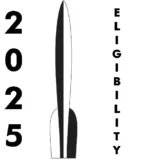Bonjour / Hola / Ciao: Selling foreign language rights
Last week, I began another mini-series, this one on your options for re-selling your stories after they’ve been published for the first time. If you haven’t already, you really, really need to go back and do your homework by rereading the following earlier posts:
- Part 4 and part 5 on understanding the licensing of rights for fiction;
- Part 17 on how to protect those rights in short fiction contracts; and,
- Part 18 on ensuring those rights revert to you.
This week, I discuss the many non-English language magazines and anthologies published around the world as potential markets for your short fiction.
Why Submit to Foreign Language Markets?
Especially if you can’t read that particular language? The reasons are similar to those for selling reprints to English markets.
First, anything you make from these sales is found money. You’ll generally get less for foreign reprints than for selling first rights to a professional English market, but you can sell your story in multiple languages. My foreign language sales have averaged over $100 per sale, so with sales to several foreign markets, you can easily pick up an additional few hundred dollars per story.
Second, like any sale, it broadens the audience of readers who gain exposure to your work. If you write novels as well as short fiction (or plan to), a resume of short story sales in non-English markets can assist in foreign rights sales for your longer work, as can the relationships and contacts that you’ll build with foreign publishers, editors, translators, and illustrators.
Third, there’s the fun factor of seeing your byline beside some of the biggest names in fiction. Even when I was starting out, my foreign language sales let my name appear alongside the likes of Steven King, Neil Gaiman, James Branch Cabell, and H.P. Lovecraft.
Finally, many foreign magazines include beautiful illustrations for your story that you won’t get in even the pro English markets and which make a great visual addition to your website.
How to Find Foreign Language Markets
I maintain the Foreign Market List (FML) on my web site, where “foreign” means non-English. The FML lists over seventy active foreign markets in thirty-three language / countries, organized alphabetically by country.
For each market, I include its web site, the name of the acquiring editor, postal and/or email address, and details about what types of stories they publish, including genre, word length, pay rates, and how to submit.
How to Select a Valid Foreign Language Market
Before you run to the list and start submitting, first let’s discuss how to choose a foreign language market. Here are the rules that I follow:
Rule 1: Never submit a story to a foreign language market until you’ve first sold it to an English-language market.
Many of the top English genre fiction markets have foreign language editions or will ask for an option on foreign language rights. Selling a story to a non-English market first could jeopardize a more prestigious and lucrative English first-rights sale. In addition, most foreign language markets prefer if your story has the credentials of a major English market.
Rule 2: You are looking for markets that will accept unsolicited submissions.
Although most foreign language magazines publish reprints from English markets, many select those stories themselves from a review of the top magazines such as Asimov’s or The Magazine of F&SF, after which they will approach the author or editor directly to acquire rights. Alternatively, some foreign markets have an agreement with the top English language magazines to reprint selected stories (which is why some top English pro markets purchase foreign language rights, as mentioned above).
Regardless, these markets don’t accept direct submissions from an author. You may still end up with your story in these magazines, but you have no control over the decision, beyond writing a great story and selling it to a top English market.
Rule 3: Unless you are multi-lingual, you are looking for markets that accept submissions in English and will translate your story at no cost to you.
In my experience, any market that accepts submissions in English will translate at no cost. Some markets, however, will accept reprints and unsolicited submissions (rules 1 and 2), but only in the language of their magazine.
The above discussion leads us to the following definition:
A valid foreign language market is one that accepts unsolicited submissions in English of stories that first appeared in English language markets, and translates them at no cost to the author.
In my Foreign Market List, I identify the valid markets, flagged as paying or non-paying, as follows:
$$$ – Confirmed valid market (paying)
YES – Confirmed valid market (no pay or pays in copies)
The FML also includes “non-valid” markets, with the following flags:
NO – Market exists but does NOT accept unsolicited subs in English
DEAD – Dead market
??? – Market under investigation or questionable
Why do I include non-valid markets if you shouldn’t submit to them? If I didn’t, and you discovered a foreign market not on the FML, you wouldn’t know if it’s one I’ve already rejected or a possible new valid market I’m not aware of.
Submitting to Foreign Language Markets
Follow the same rules as you would if submitting to an English market in a foreign country: proper manuscript format, cover letter / email, SAE and IRC for snail mail submissions. Part 10 in this series covers the proper short fiction submission process. Almost all of these markets now take submissions by email, but check the market’s FML entry for how to attach your story (text in body, type of file attachment, etc.).
And yes, you can submit in English. You don’t need to get your cover letter translated. If the magazine accepts submissions in English, they can read English (duh).
Next Week
I’ll complete this discussion on submitting to foreign language magazines by reviewing some possible problems that you might encounter. I’ll also relate a chain of wonderful experiences that resulted from the sale of a single story to one French market, and will end this topic of selling reprints by reviewing how to sell audio rights.
Next Week: Bonjour / Hola / Ciao: Selling foreign language rights (conclusion)
As always, please feel free to add comments and questions, and I’ll respond as best (and as soon as) I can. I’ve written these posts in a very specific sequence, with each entry building on previous ones. You can read my earlier posts here.
~~~~~
PLAYING THE SHORT GAME — The Book!
I am thrilled to announce that I have now repackaged the 32 separate posts that make up this blog series into a book titled Playing the Short Game: How to Market & Sell Short Fiction. The book is completely updated and reorganized, with new material not in this blog series, plus an introduction from multi-genre, multi-award winning writer and editor, Kristine Kathryn Rusch. Here’s an extract from Kris’s intro:
Douglas Smith is the best person to write this book. … He’s one of the few people who has probably published more short fiction than I have, and in more countries, and more high-paying markets. He loves the short story as much as I do, and he’s good at writing them.
He’s just as good at the business side of the profession. He knows more about marketing short stories to other countries than I do. He understands how to manage short fiction contracts very well. He’s up-to-date on 21st century publishing practices, and he has a toughness that the best business people need.
We short story writers have needed a book like this for decades. I’m glad Doug decided to write it. Read and reread this volume. Because you’ll learn something each time you do. And take Doug’s advice. It’s spectacular.
—Kristine Kathryn Rusch
More information on the book, including full buying links for all major retailer sites, is available on my website here.
As a special offer to Amazing Stories readers, I’m offering discounts in my bookstore. Get the ebook or print edition at a discount by using the coupon codes AS-SHORT-E or AS-SHORT-P respectively at my website bookstore. Enjoy!
Doug is an award-winning Canadian writer whose fiction has appeared in twenty-five languages and thirty countries. His works include The Wolf at the End of the World, Chimerascope, and Impossibilia.








I have a whole passel of stories related to China, after a long subsistence here. Would it possibly be wiser to send them to SF World in Chengdu than to try to sell them to Asimov’s in New York?
Jean, see my “Rule #1” above. Always sell English rights first before trying to sell foreign language rights. You *might* be safe but only if Asimov’s doesn’t have any reprint agreements with any Chinese language market anywhere. If they do, then they may pass on your story even if they want to buy it because you’ve already sold first rights in Chinese. My advice would be to keep sending the stories to English language markets until you sell them. Then, and only then, start to market the stories to non-English markets.
Plus your stories are probably quite unique if you’re drawing from your experiences living there. China is a growing power and you may find English market want to capitalize on that.
Time to update “The Short, Strange Life of Comrade Lin” then.
Good luck with it. If you haven’t already, read my post #7-9 on selecting markets, and especially #16 on when to stop submitting a story.
Already done, sir, and I updated my Favorites on the Grinder to reflect the new preferences. I’ve already collected TWO rejections! 😀